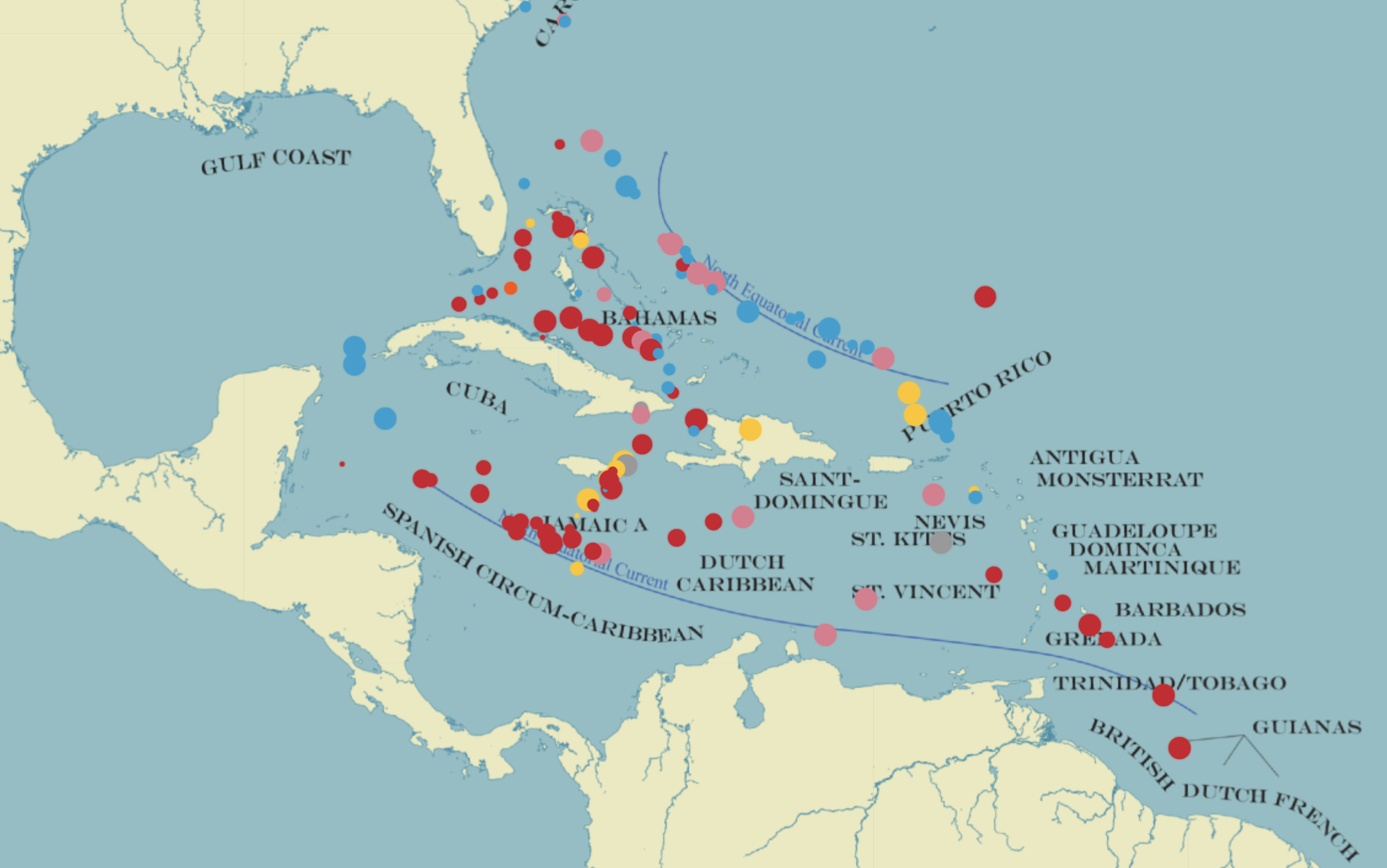About the Project
Routes of Enslavement in the Americas is a University of California Multicampus Research Programs and Initiatives (MRPI) led by Alex Borucki, UCI Professor of History, Gregory O'Malley, UCSC Professor of History, and Sabrina Smith, UCM Assistant Professor of History. The project targets three core research areas: 1) inter-regional movements of African and African-descended captives within colonial Mexico (including California and other parts of what is today the United States and Central America), 2) investigation of the Black Pacific Worlds by tracking coastal trafficking routes connecting ports in California, Mexico, Panama, Colombia, Ecuador, Peru, and Chile, and 3) further research on Caribbean migrations (coerced and free) of African-descended people, between islands and with the mainland Americas.
The Intra-American Slave Trade Database, created by Alex Borucki and Gregory O’Malley, is a vital resource for the study of the African diaspora in the Americas. Launched online in 2018, it documents more than 27,000 voyages that trafficked enslaved Africans and African-descended people from one part of the Americas to another, from 1550 to 1860. This project expands the collaboration for this research initiative to a network of scholars across UC campuses, both to enhance the database’s coverage and strengthen research throughout the University of California system on the history and impact of the slave trade and slavery in the Americas, by connecting scholarship on the Atlantic and Pacific Worlds.
Funded by the UC Office of the President Multicampus Research Programs and Initiatives (MRPI)
With additional support from the UC Irvine Humanities Center, the UC Merced Department of History, and UC Santa Cruz's The Humanities Institute.
Banner Image: Kathie L. Foley-Meyer, PhD, UCI Visual Studies, https://kf-m.com/

